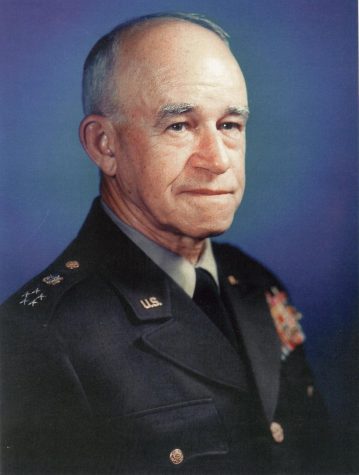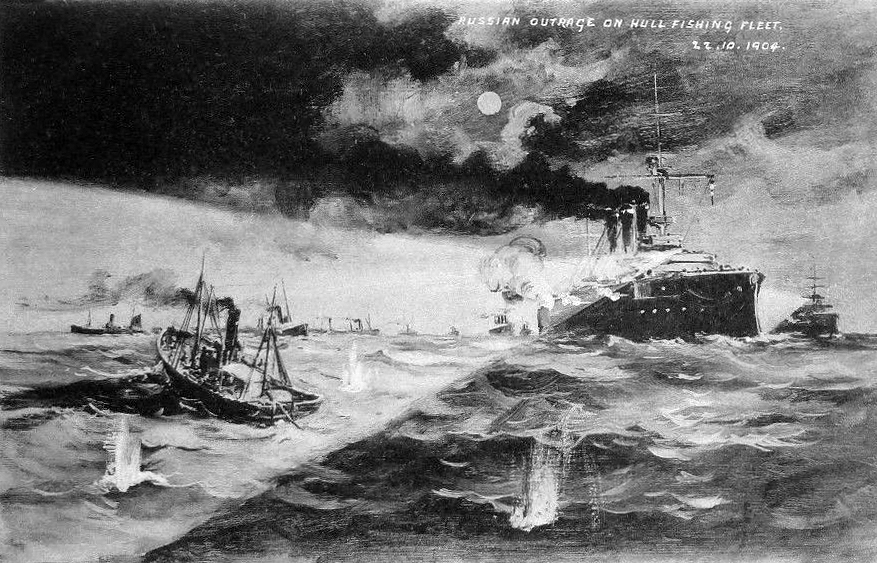Personal History Column: (Just) Two More Historical Instances of Impossible Stupidity
After the Japanese Navy attacked the Russian Pacific Fleet in 1904, Tsar Nicholas II decided to dispatch the Russian Baltic Fleet to their aid.
1. The Dogger Bank Incident: more British fishermen antics
After the Japanese Navy attacked the Russian Pacific Fleet in 1904, Tsar Nicholas II decided to dispatch the Russian Baltic Fleet to their aid. To put it politely, the subsequent 18,000-mile voyage was more disastrous and achingly stupider than this article can do justice, but their crowning moment of stupidity came right after setting sail from St. Petersburg and entering the North Sea.
Off the coast of Great Britain, the fleet spotted a small British fleet of trawlers fishing in the Dogger Bank. With the decision making skills just shy of your average granite countertop, the Russian admiral opened fire, because this man, Zinovy Rozhestvensky, who had somehow achieved the prestigious rank of admiral, believed that they were not British trawlers, but actually Japanese torpedo boats. In the North Sea, 18,000 miles away from Japan.
The Russian fleet of over 40 warships sank one of the trawlers, killed two fishermen, damaged five other trawlers, and wounded six other fishermen, which is impressively low in consideration due to the appalling state of Russian gunnery at the time. The battleship Oryol fired over 500 shells and did not hit a thing, although some of the other Russian ships were able to do some damage to two of their own cruisers, killing both a sailor and priest.
This is not to mention that the crew of another battleship reported Japanese pirates had boarded, leading half of their crew to cower prone on the deck and the other half to grab knives and cutlasses and run around screaming.
This “battle,” where fatalities on both the British fishermen’s and Russian Navy’s side were equal, sparked a diplomatic outrage in the United Kingdom, an ally of Japan at the time. With public calls of war, the Royal Navy raised anchor and steamed after the Russian fleet with 28 battleships that were more than capable of hitting a barn from the inside, unlike the Russians. The British Empire also denied the Russian fleet access to the Suez Canal, meaning they would have to sail all the way around the entire continent of Africa.
The Russian fleet ultimately avoided war with the world’s most eminent naval superpower at this point in history, only to be literally obliterated in one of the most lopsided battles in history, the 1905 Battle of Tsushima Strait.
Was it all worth the trouble, Nicky?
Read more about that voyage, featuring black lung, a pack of hungry sharks, and 2,000 opium-packed cigarettes among many many other things.
2. The Detainment of General Omar Bradley

In preparation for a last ditch German offensive in December 1944, English-speaking German commandos in stolen U.S. uniforms infiltrated Allied lines in the Ardennes Forest. In order to catch them, U.S. troops began quizzing one another on American sports, culture, and state capitals.
That last one proved particularly troublesome when a U.S. military policeman stopped the very commander of the American forces, General Omar Bradley, and asked him for the capital of Illinois. Bradley, peeved at the very least, correctly answered, “Springfield,” for which he was promptly detained under the M.P.’s assumption that the capital of Illinois was Chicago, thus leaving the U.S. Army briefly leaderless as the Germans were pummeling their lines during the bloody Battle of the Bulge.
A pure, red-blooded American, ladies and gentlemen: a man so aggressively wrong that he confidently imprisoned the future highest-ranking officer in the United States Armed Forces. To quote Mark Twain, “God created war so that Americans would learn geography.” Looks like it’s far past time for Civil War 2: Illinois Boogaloo.






